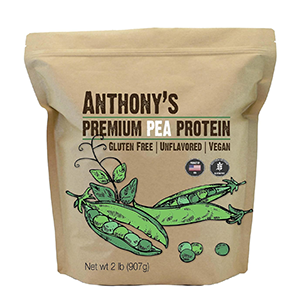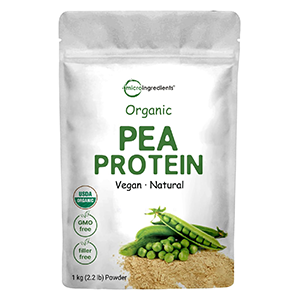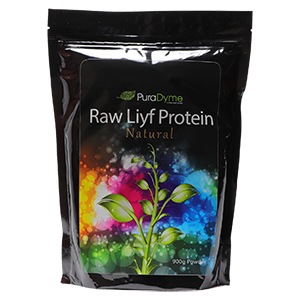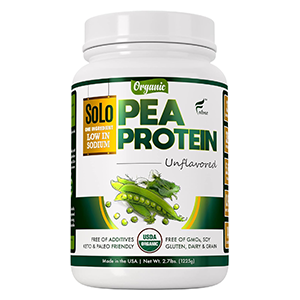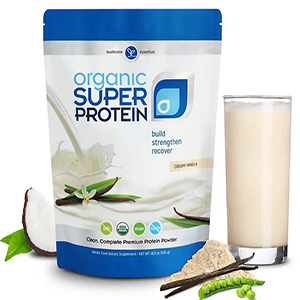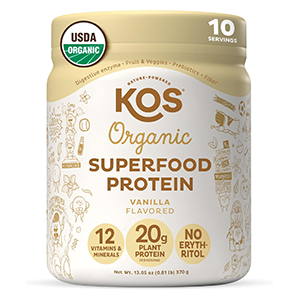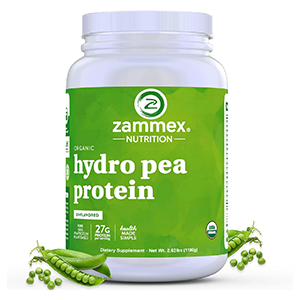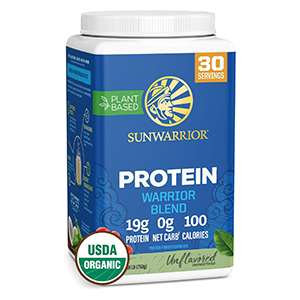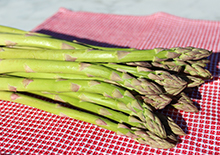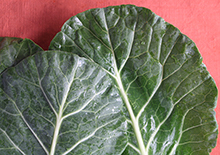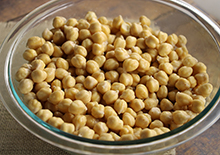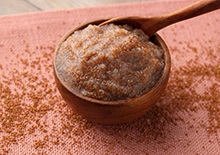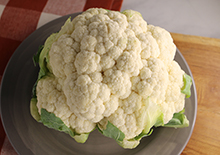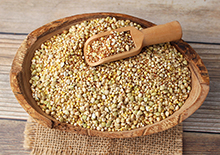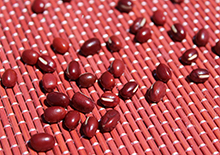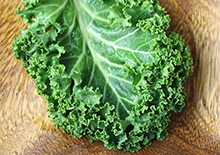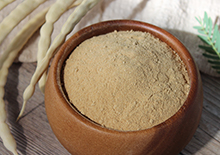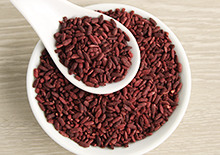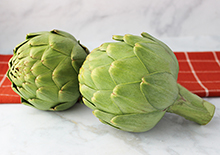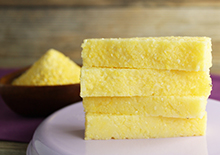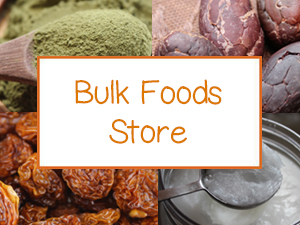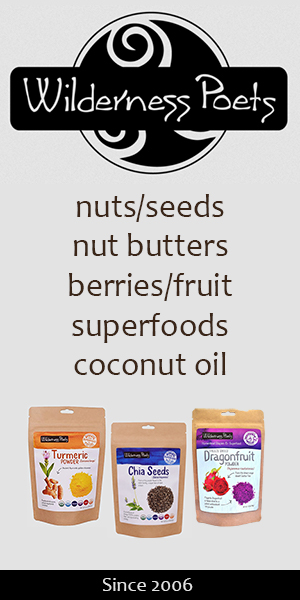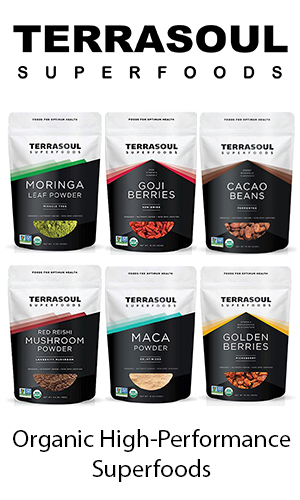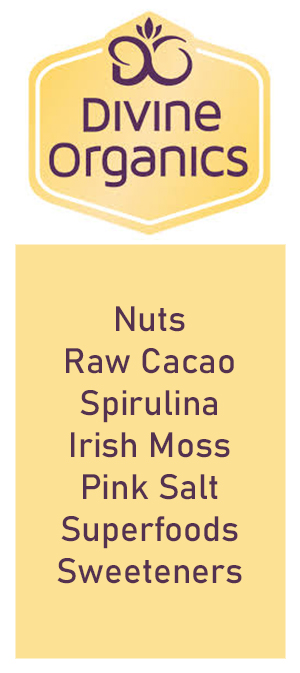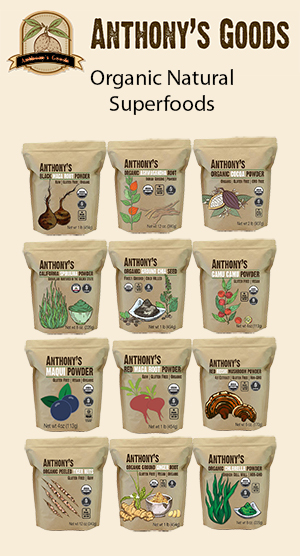- Home
- Plant-Based Cooking
- Pea Protein Powder
Pea Protein Powder, The Pros and Cons
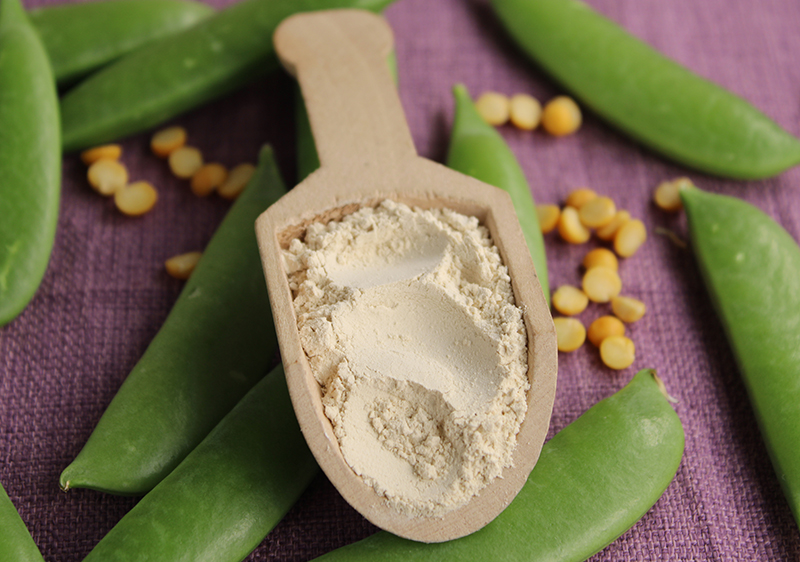
First off, what is pea protein exactly? Pea protein as the name implies is a type of powder that is extracted from the Pisum sativum field pea species.
Peas from the pod when mature are typically green but can also be a golden yellow color, depending on variety. When dried and dehulled they easily split in half, looking a little bit like a lentil. This creates split green peas or split yellow peas which are a common legume staple used for things like soups and stews.
Table of Contents
What is Pea Protein? | Pros of Pea Protein | Cons of Pea Protein | How to Use | Precautions | Shop
Pea protein powders are made from these dried split peas and, according to our research, most manufacturers use the dried yellow split peas, not the green ones.
Typically, these yellow peas go through an extraction process which produces a beige to light yellow colored powder or "pea protein isolate" that blends very well into drinks and recipes to enhance protein intake.
It goes without saying that in the last decade there has been a continued trend toward introducing more plant-based foods into one's dietary strategy.
But, when it comes to protein powders, is pea protein a better plant protein option than other types? We would say there are some definite advantages and disadvantages to using pea-extracted protein that you may want to think about before making it a part of your occasional or daily routine.
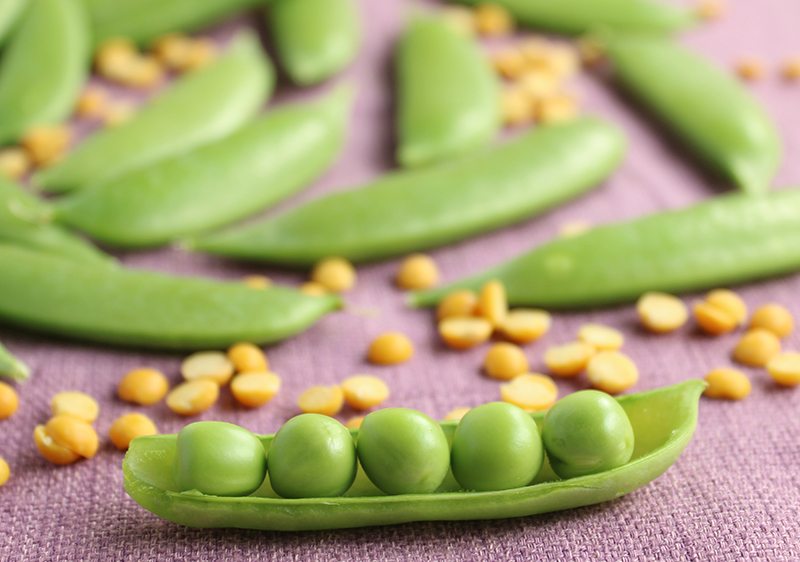
Pros of Pea Protein
PRO #1 - Plant Protein Option
PRO #2 - Not a Common Allergen
PRO #3 - Whey Vs Pea Protein
PRO #4 - High in Iron
PRO #5 - More Sustainable
PRO #1 - Plant Protein Option
Because peas are naturally high in protein, it makes a great plant-based option for vegans, vegetarians, and those looking to cut back on animal-based foods. In fact, it is often number one on the list of ingredients in most plant-based protein powder blends.
Most pea protein powders go through the mentioned processing which removes the starch and fiber and thus concentrates the PROTEIN content.
Labels on 100% pea protein products indicate that a serving size (about 30 grams) added to something like a protein shake usually averages around 27 grams of protein.
One tablespoon is frequently reported to hold about 8 grams of total protein.
These pure pea protein isolates are full of many of the AMINO ACIDS and can be one to rotate with along with our other favorites like hemp seed protein.
Some of our recommended brands, like Sun Warrior, Puradyme and Touchstone Essentials, list pea protein first on their mix of protein powder ingredients along with others such as hemp seed, goji and sometimes rice protein.

PRO #2 - Not a Common Allergen
One great thing about peas is that they are not on the list of common food allergens like soy, dairy, whey, seafood, tree nuts, peanuts and gluten.
This makes their proteins a better choice for individuals with dietary sensitivities or restrictions.
Pea protein powders can be added to many homemade creations, not just protein shakes. They're easy to incorporate into baked goods, protein bars and even things like pancakes to increase protein intake.
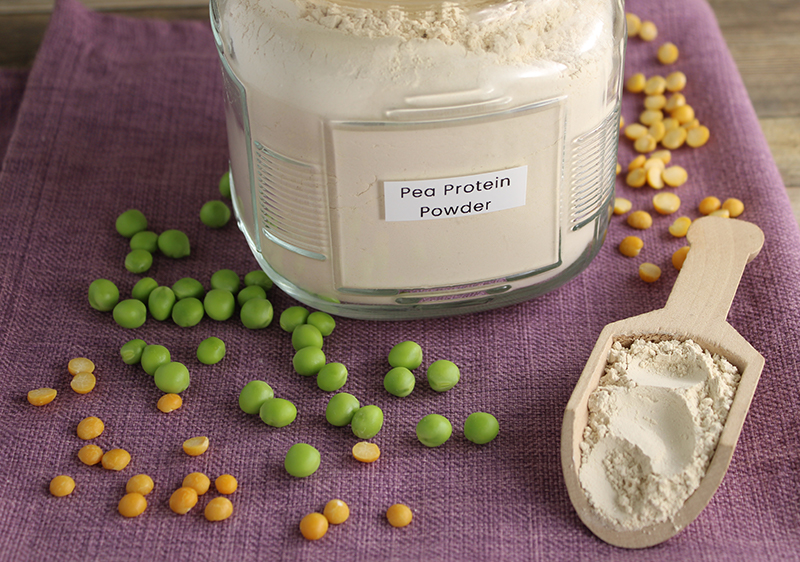
PRO #3 - Whey Vs Pea Protein
Whey protein powders are notorious for causing digestive problems when consumed in large amounts or by those intolerant to lactose. Bodybuilders or athletes looking for an alternative to whey may find the answer in the pea legume.
In some research, both pea and whey protein produced similar muscle-strengthening outcomes on men and women participating in high-intensity resistant training for an 8-week period.
Pea protein supplementation might be one to include in a muscle-building routine along with regular workout protocols.
Some reports likewise suggest that the higher amounts of ARGININE and the three branch chain amino acids: LEUCINE, ISOLEUCINE and VALINE in peas may be the reason it helps with exercise performance and supports muscle growth.
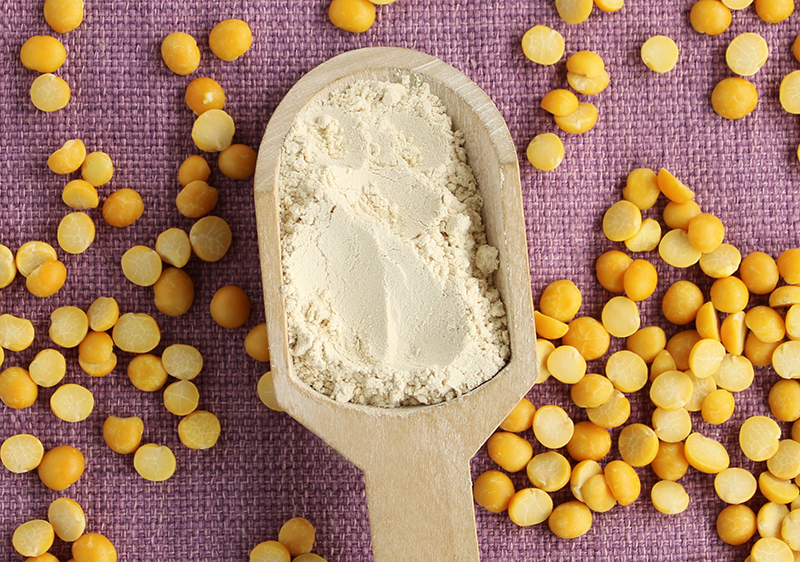
PRO #4 - High in Iron
Pea proteins are known to contain high amounts of IRON. Iron content on nutrition labels usually averages about 30-45% the recommended daily value for adults consuming a 2000-calorie daily diet.
Iron is an essential part of hemoglobin and the transportation of oxygen to the cells of the body. It is required for many enzymes and proteins and is known to build strength, enhance energy and prevent anemia. Iron is one of the trace nutrients that play a role in the production of enzymatic antioxidants.
PRO #5 - More Environmentally Sustainable
Growing peas is thought of as a sustainable food source requiring less fertilizers and water to produce. In addition, peas are a fast-growing crop providing prolific pod production.
As the trend for eating less meat continues, pea proteins are used commercially in many plant-based products like vegan milk, veggie burgers or to fortify snacks and cereals.
Cons of Pea Protein
CON #1 - Potential Anti-Nutrients
CON #2 - Isn't a Complete Protein
CON #3 - Higher in Sodium
CON #4 - No Fiber Content
CON #5 - Commercial Quality
CON #1 - Potential Anti-Nutrients
Peas are known sources of "anti-nutrients" such as lectins, phytates, oxalates and trypsin inhibitors. All of these compounds make it hard to digest and absorb pea nutrients like protein.
Many of these digestive inhibitors are especially present in the hulls of the pea seed itself.
We would say that the safest way to avoid many of these anti-nutrients is to go with pea protein isolates that utilize the wet or dry fractionation process which dehulls or removes the outer skins of the pea.
However, according to our research, because pea isolates aren't substantially heated during processing, there will be some anti-nutrients like lectins which may cause issues for sensitive individuals.
In addition, when used commercially in food products like meat alternatives, the peas are not always dehulled for textural purposes.
CON #2 - Isn't a Complete Protein
One of the lightweight criticisms of pea protein is that it’s not a "complete protein". It has all the 9 essential amino acids, but the amounts of cysteine and methionine are too low to be called adequate.
This is also common with other legume types. However, it is easy to remedy this equation by eating other foods that have the complementary essentials. In other words, they don't all need to come from one food source.
Many vegan protein powder brands have a blend of plant proteins to ensure that all the bases are covered.
CON #3 - Higher in Sodium
The protein in peas is commonly extracted using a salt solution. Powders can therefore be higher in sodium.
Some potassium is usually present which can help to balance the sodium content, but it is good to be aware if you're someone who is watching your salt intake.
Some protein powder manufacturers have now gone to the extra step of removing some of the sodium. These can be better options for some people using 100% pure pea protein.
CON #4 - No Fiber Content
Protein powder isolates remove the fiber and starch from the powder. These are the types marketed as "protein powders".
It is therefore important to make sure you balance the fiber ratio with other ingredients that commonly go into things like protein shakes and smoothies.
Pea protein concentrates on the other hand have a full array of fiber, starch as well as protein.
CON #5 - Commercial Quality
It is a good idea to purchase non-GMO organic pea protein powders to make sure you're getting a high quality. Peas produced from conventional agriculture are often heavily sprayed with things you don't want to be concentrated in your morning beverages or recipes.
Many manufacturers also add other filler ingredients that are best avoided such as sugar, aspartame, thickeners, artificial flavors and colorings. So, it good to keep an eye out and read your labels.
How to Use
The taste of the pure powder is very mild but not especially flavorful. It is therefore best masked with other food flavors.
Pea protein powder can be incorporated into blended drinks but also other foods to boost the protein content.
This may include oatmeal, protein bars and many baked goods like cookies, muffins, breads and flatbread.
It has recently been used commercially to make "pea milk" as an alternative to dairy.
Precautions:
Consult a health professional before adding pea protein powder to your diet on a regular basis. This is especially the case if you are pregnant, nursing, have a serious health condition or are taking any medications.
Shop Related Products (About Affiliates & Amazon Associate Paid Links)
Affiliate Disclaimer: This section contains affiliate product links. If you make a purchase through our recommended links, we receive a small commission at no additional cost to you. Thanks for the support.
